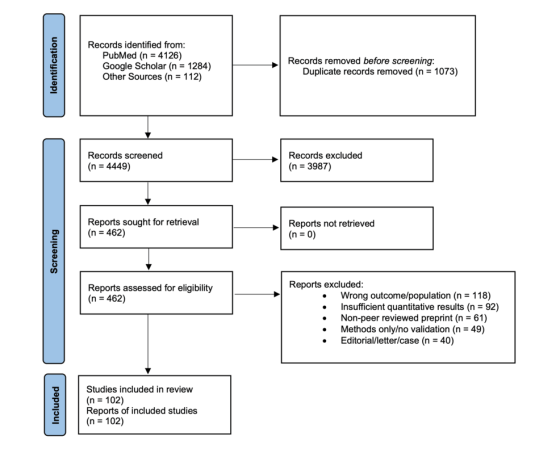Research uses eye-tracking data to examine some people’s extraordinary recognition ability
How AI can help detect warning signs of financial market stress
Predicting financial market stress is a significant challenge, as traditional models often fail to capture complex and nonlinear dynamics. This column highlights two recent advances in the use of AI tools to anticipate financial market stress. The first is a novel framework using machine learning to predict financial market stress and explain the main factors driving predictions. The second integrates numerical data with textual information using large language models to forecast market stress and identify its underlying drivers. Policymakers can use these tools to monitor emerging risks in real time, combining quantitative forecasts with qualitative insights from financial news and commentary.
Marquis Who's Who Honors Veerendra Nath Jasthi for Expertise in Artificial Intelligence, Machine Learning and Cloud Technologies
November 5, 2025 — Veerendra Nath Jasthi is a distinguished leader in technology as a staff MLOps engineer at HCA Healthcare
Artificial Intelligence in Ophthalmology: Practical Applications, Subspecialty Evidence and Real-World Deployment
Artificial Intelligence (AI) has undoubtedly emerged as a transformative technology in the field of medicine. In ophthalmology, it has been a catalyst for innovation in the methods used for the …
A Wandering Humanity: A Catholic Response to Artificial Intelligence
For thousands of years, the Catholic Church has encouraged people to question who they are. The existential question of “Who am I?” lingers in every human, it is one, if not the, fact that reminds us of our humanity. This question is something that has the ability to draw people to the Catholic Church and deepen their connection to God as well as the people around them.
Artificial intelligence meets medical rarity: evaluating ChatGPT’s responses on post-orgasmic illness syndrome
International Journal of Impotence Research – Artificial intelligence meets medical rarity: evaluating ChatGPT’s responses on post-orgasmic illness syndrome
Application of artificial intelligence in predicting the results of open-heart surgery: a scoping review – BMC Medical Informatics and Decision Making
Purpose This scoping review aims to synthesize research on artificial intelligence (AI) in predicting open-heart surgery outcomes, evaluating AI model performance, and identifying gaps in data quality, algorithmic bias, and clinical applicability to guide future advancements in personalized surgical planning and patient outcomes. Methods Conducted using the PRISMA-ScR guideline, the review involved a systematic search across PubMed, Web of Science, IEEE, and Scopus. Articles were included if they focused on open-heart surgery, utilized AI methods, and were published in English. Exclusion criteria included non-relevance to open-heart surgery, non-original research, and lack of AI techniques. Data extraction included study details, AI methods, and performance metrics. Descriptive statistics were used for analysis. Results Of the 64 included studies, 89.06% were retrospective. The most frequently employed algorithm was logistic regression (n = 41), followed by random forest in 38 studies and XGBoost in 32 studies for data analysis. Most studies focused on predicting postoperative outcomes. Mortality, acute kidney injury, and complications were the outcomes that more studies concentrated on. XGBoost, used in 32 studies, exhibited the best performance in 11 of these studies. Deep learning and hybrid models were underutilized. Major limitations included inconsistent model validation, limited prospective data, and lack of diversity in patient populations. Conclusion AI demonstrates promising predictive capabilities in open-heart surgery, particularly through machine learning models. These models can already assist surgeons in real-world practice by supporting real-time risk stratification and personalized decision-making, such as identifying high-risk patients for targeted interventions. However, methodological limitations hinder clinical translation. Future work should emphasize prospective validation, explainable AI, and equitable data representation to enhance model reliability and applicability in real-world settings.
Stock market today: Dow, S&P 500, Nasdaq futures mixed after tech sell-off, AMD slides after earnings
Stock futures were mixed following a choppy day that saw all three major gauges fall.
Amazon and Perplexity Clash Over Deployment of Third-Party AI Shopping Agents
Amazon and artificial intelligence (AI) startup Perplexity are in a dispute over the deployment of third-party AI agents for shopping. Perplexity said in
Asia-Pacific markets set to fall, tracking Wall Street declines on AI valuation concerns
Asia Pacific markets are mostly set to fall Wednesday, tracking declines from Wall Street.




